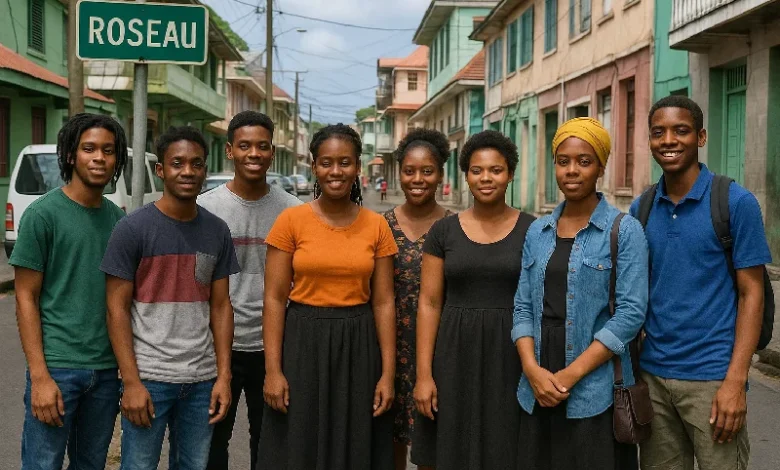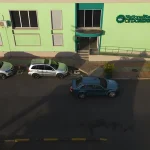Youth of Dominica

The youth of Dominica represent a vital and dynamic segment of the population, shaping the nation’s present and influencing its vision for the future. With nearly 60% of the population under the age of 35, Dominica’s development trajectory hinges on the ability of its young people to access quality education, secure meaningful employment, engage in civic life, and participate in decision-making. From rural villages to urban centres like Roseau and Portsmouth, young Dominicans are making their voices heard, pushing boundaries in technology, arts, politics, agriculture, sports, and environmental action.
Demographics and Social Composition
Young people in Dominica occupy a central place in the national demographic profile. Based on the most recent available data, persons aged 15 to 35 constitute over one-third of the working-age population. This age group is increasingly urbanised, but many retain deep ties to rural communities such as Grand Bay, Wesley, Kalinago Territory, La Plaine, and Coulibistrie. Though diverse in culture, background, and ambition, Dominican youth share common challenges related to employment, educational access, health, and representation.
Significantly, Dominica’s youth population reflects a blend of Afro-Caribbean heritage, Kalinago identity, European lineage, and growing Diaspora connections. These cultural intersections have fueled creative expression in music, language, fashion, and activism. Young Dominicans, whether on-island or abroad, retain a strong connection to community and heritage, often returning to contribute to development or social causes.
Education and Training Opportunities
Education is a fundamental area where the youth of Dominica find both opportunity and limitation. Primary and secondary schooling is widely accessible, with universal primary enrollment. Government investment in education has improved access to textbooks, transportation, and special-needs services. Secondary schools such as Dominica Grammar School, North East Comprehensive, Isaiah Thomas Secondary, and Pierre Charles Secondary have produced numerous future leaders and professionals.
Dominica State College (DSC) offers academic and technical paths beyond high school. However, challenges persist. Vocational training has a low capacity, tech infrastructure is lacking, and regional/global university costs are significant barriers for youth.
Scholarships provided by Cuba, China, Venezuela, and other bilateral partners have offered a lifeline to hundreds of Dominican students. Nevertheless, the country continues to grapple with “brain drain,” as many educated young Dominicans remain abroad due to better opportunities or a lack of reabsorption into the local economy.
To combat this, initiatives such as the Youth Development Division’s apprenticeship program, the National Employment Programme (NEP), and community-driven skill-building efforts have emerged. They aim to retool young people for the modern industry’s needs, including skills for the green economy, digital literacy, and entrepreneurship.
Employment and Entrepreneurship
Unemployment and underemployment are pressing concerns. While many young Dominicans are formally educated, job creation has not kept pace with their educational attainment. The public sector remains a major employer, yet positions are limited. Sectors such as agriculture, tourism, construction, and services offer varying degrees of seasonal or informal employment, especially in rural areas.
Some youth have responded by creating their own opportunities. Micro-enterprises in agro-processing, digital services, entertainment, and food retail are becoming more common. Initiatives such as the Dominica Youth Business Trust (DYBT) have offered financing and mentorship to emerging entrepreneurs, with several success stories like 365 Group Inc., Jaydees Naturals, and GreenDominica Tech emerging from this space.
Despite this, structural challenges persist: limited access to capital, high import costs, weak consumer markets, and regulatory constraints. Young entrepreneurs continue to call for stronger policy support, digital infrastructure, and regional exposure.
Civic Engagement and Political Participation
Dominican youth have shown increasing engagement in politics, social justice, and community work. While formal youth wings of political parties such as the Dominica Labour Party (DLP) and the United Workers Party (UWP) have waxed and waned in influence, issue-based mobilization is growing. From protests over electoral reform to campaigns for climate justice, young Dominicans are carving out space in national discourse.
The National Youth Council of Dominica (NYCD) plays a key role in advocacy and leadership development, organizing youth parliament sessions, community workshops, and UN-related forums. However, the NYCD has faced criticism over the years for being inactive or politically compromised. Periods of rejuvenation, such as the revitalization effort in the early 2020s, have shown the potential for this platform to become a genuine voice for youth.
Faith-based and community organizations, such as the Catholic Youth Movement, Kalinago Youth Council, 4-H Clubs, and village-based youth groups, continue to provide important leadership opportunities. At the same time, online platforms like Domnik News Youth Panel and digital creators on TikTok and Instagram are redefining what civic engagement looks like for a new generation.
Culture, Arts, and Identity
Young Dominicans are powerful drivers of cultural preservation and reinvention. Music genres such as bouyon, reggae, hip-hop, and dancehall are being reshaped by local artists like Colton T, Reo, and Tasha P, who fuse social commentary with danceable rhythms. Youth participation in events like the World Creole Music Festival, Giraudel-Eggleston Flower Show, and Independence Celebrations keeps traditions alive while innovating new forms.
Visual artists, filmmakers, and photographers are also gaining recognition, with some being mentored through programs at the Old Mill Cultural Centre or participating in regional arts festivals. Language preservation has found its way into youth projects aimed at revitalizing Kwéyòl (Creole), particularly in schools and rural communities.
Meanwhile, identity politics and self-expression are evolving. Conversations around gender, mental health, body image, and sexuality are slowly emerging from private spaces into public dialogue, often led by younger voices. Though these conversations are still fraught with stigma, they signal an expanding space for authenticity and inclusion.
Health and Wellbeing
The health of youth in Dominica includes both physical and psychological dimensions. The Ministry of Health provides primary care and vaccinations through public clinics, with school-based health programs targeting dental care and sexual education.
However, mental health is an increasingly critical issue. Limited access to counseling services, stigma around mental illness, and the trauma of natural disasters like Tropical Storm Erika and Hurricane Maria have affected many youth. Efforts like Let’s Talk Mental Health Dominica, the Dominica Psychological Society, and church-based interventions are growing but need broader institutional support.
Sexual and reproductive health services remain a mixed bag. While teenage pregnancy rates have declined over the last decade due to education campaigns, access to contraception and information remains uneven, especially in rural areas.
Substance use, especially alcohol and marijuana, is common among youth. Ongoing discussions around cannabis decriminalization and medicinal use are being closely followed by young people, who are among the most affected by policing and legal ambiguities.
Sports, Resilience, and Global Identity
Sports offer another major avenue for youth development. From cricket and football to netball, track and field, and volleyball, Dominica’s youth dominate the national scene. Facilities such as Windsor Park Stadium, the Benjamin’s Park, and community fields in La Plaine, Portsmouth, and Castle Bruce host both formal and grassroots competitions.
Several young athletes have gone on to regional and international exposure, especially in cricket and athletics. Investment in school sports, coaching, and equipment remains uneven, yet communities continue to rally around promising talent.
Additionally, young Dominicans increasingly identify as global citizens. Those living abroad in Canada, the United States, the UK, and French territories remain deeply connected to island affairs. Online activism, Diaspora donations, and cultural remittances flow steadily from this group, bridging geography and identity.
Moving Forward: National Priorities for Youth
The future of Dominica depends heavily on unlocking the potential of its young people. There are calls for:
- Greater inclusion of youth in policymaking at the village council and national levels.
- Investments in digital infrastructure to expand online education and remote work opportunities.
- Formalization and strengthening of youth employment programs, especially in green jobs, ICT, and agro-innovation.
- Expansion of scholarships and youth exchanges.
- Mental health care tailored to the needs of young men and women.
- Legal reforms to decriminalize youth offenses and focus on restorative justice.
Dominican youth are not simply waiting to be handed a future. They are actively shaping it—through innovation, resilience, and pride in their cultural heritage.




